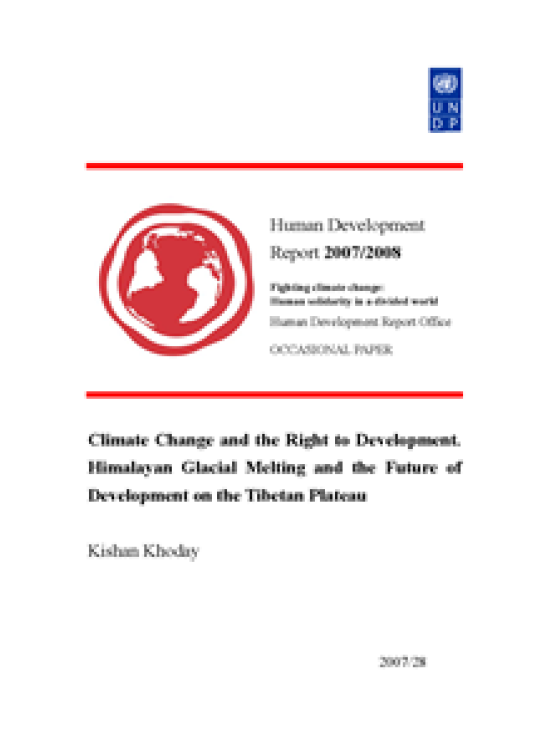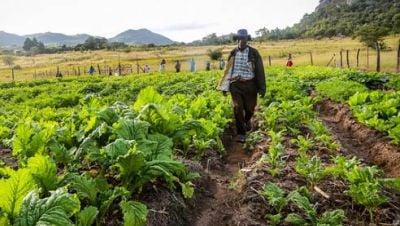Climate Change and the Right to Development
Himalayan Glacial Melting and the Future of Development on the Tibetan Plateau

Download Report by Language
Document
khodaykishan.pdf
(616.95 KB)
Citation
Khoday, Kishan. 2008. Climate Change and the Right to Development: Himalayan Glacial Melting and the Future of Development on the Tibetan Plateau. New York.
Climate Change and the Right to Development
Himalayan Glacial Melting and the Future of Development on the Tibetan Plateau
Posted on: January 01, 2008
According to recent findings from the 2007 sessions of the UN Inter-Governmental Panel on Climate Change (IPCC), ten of the warmest years in recorded history have occurred since 1990, leading to more frequent and extreme storm events and higher rates of glacial melting on the world’s mountains and polar icecaps. The latest IPCC findings now show clear and convincing evidence (90% certainty) that our use of fossil fuels and emission of greenhouse gases are warming the Earth well beyond normal background levels, bringing far reaching consequences for the state of global ecosystems and the future of human development. Even if more drastic measures were started today to greatly reduce global emissions, the impacts of current climate change trends would continue to pose serious risks to humanity for decades to come. With the impacts of climate change felt more frequently in various parts of the world in the form of severe droughts, water shortages and extreme weather events, the time for speculation over the causes and consequences of climate change is over. While stronger mitigation measures are critical, it is increasingly clear that we are now entering a period of hard consequences, requiring urgent adaptation measures.

